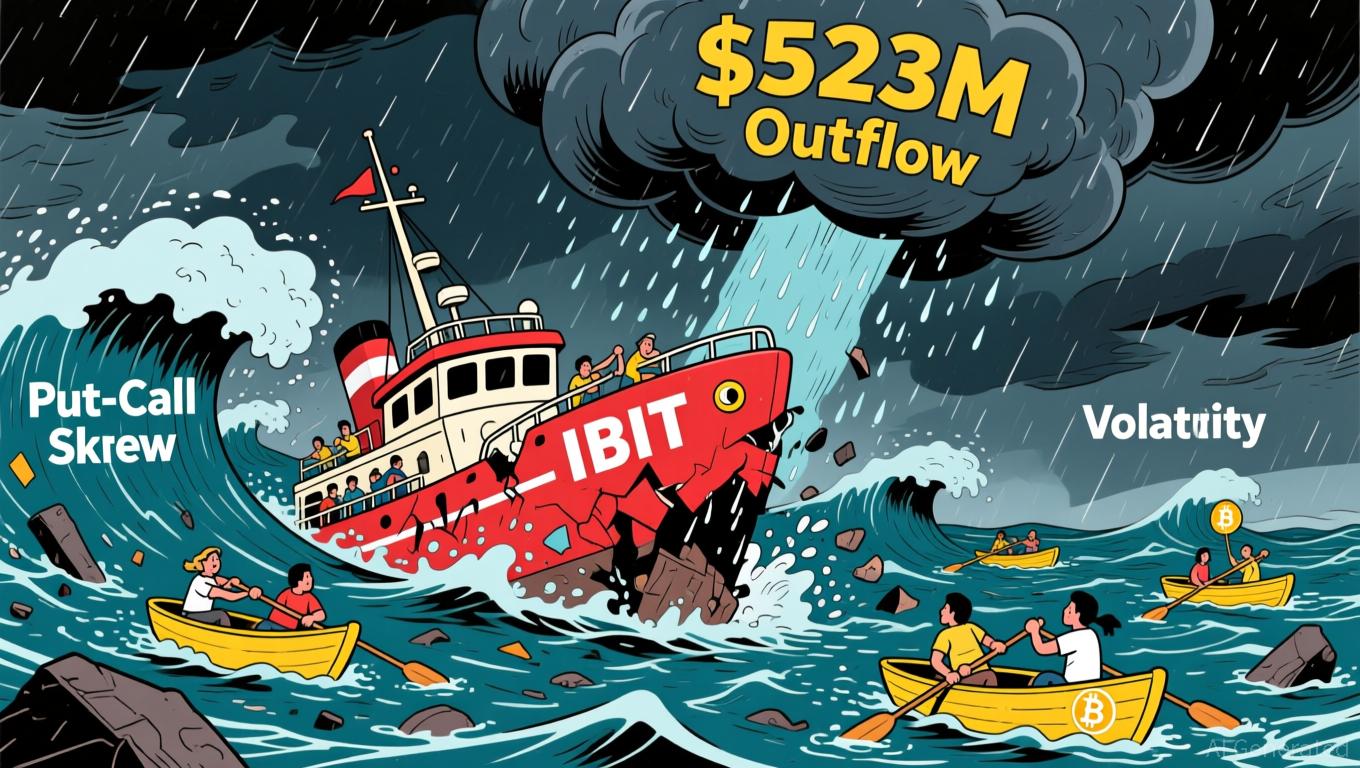Senate Crypto Legislation Transfers Oversight to CFTC Amid Rising Partisan Debate
- U.S. Senate proposes bipartisan bill transferring crypto regulation to CFTC, limiting SEC's role and classifying most cryptocurrencies as commodities. - Trump's CFTC nominee Selig faces scrutiny over agency staffing and bipartisan governance, with Democrats warning of political bias risks under single Republican leadership. - Industry supports CFTC's expanded oversight for regulatory clarity, but critics question its capacity to enforce AML standards and manage crypto market growth. - Finalized framework
The United States Senate has introduced a bipartisan draft bill designed to clarify cryptocurrency regulations, designating the Commodity Futures Trading Commission (CFTC) as the chief federal regulator for digital assets. Senators John Boozman (R-AR) and Cory Booker (D-NJ) presented the proposal, which outlines the CFTC’s responsibilities over crypto spot markets, the classification of digital commodities, and the establishment of market structure guidelines, while
A key issue in the discussion is the confirmation of Michael Selig, former President Donald Trump’s nominee to head the CFTC. During a Senate Agriculture Committee session, Selig was questioned about his hesitation to pledge additional resources for the agency or to ensure bipartisan representation. At present, the CFTC has only one commissioner, Republican Caroline Pham, who is also acting chair.
The proposed legislation would establish a national regulatory system that treats most cryptocurrencies as commodities, placing them under the CFTC’s supervision. This approach reflects increasing support from both the industry and lawmakers for the CFTC’s expertise in derivatives and global commodities.

The future of the bill remains uncertain. The Senate Agriculture Committee, which has oversight of the CFTC, is expected to review the proposal before it proceeds to the full Senate. Meanwhile, Selig’s confirmation hearing is scheduled for Thursday, with a final Senate vote anticipated soon. If approved, Selig would be the sole commissioner,
Major players in the crypto industry have largely supported expanding the CFTC’s role, seeing it as a move toward clearer regulation. The bill’s focus on self-custody rights and fewer intermediary requirements has also been positively received by advocates of decentralized finance (DeFi)
As discussions progress, the results of these legislative and regulatory efforts will shape whether the U.S. secures its role as a leader in the global crypto market or faces increased division and uncertainty in its digital asset sector.
Disclaimer: The content of this article solely reflects the author's opinion and does not represent the platform in any capacity. This article is not intended to serve as a reference for making investment decisions.
You may also like
Stellar News Today: Established Market Prefers Altcoins with Practical Use Cases Rather Than Pure Speculation
- MoonBull (MOONBULL) raised $600,000 in funding, highlighting growing institutional interest in utility-driven altcoins with DeFi infrastructure and staking rewards. - Crypto.com's CRO token maintains stability through expanded merchant partnerships and AI-driven tools, positioning it as a "safe haven" amid market volatility. - Stellar's XLM sees renewed adoption via cross-border payment partnerships, with 20% higher transaction volumes reflecting demand for low-cost solutions in emerging markets. - Marke

Hong Kong Steps Up Global Stablecoin Oversight, Focuses on Competition with Tokyo
- Hong Kong regulators impose strict rules on stablecoin issuers, requiring fiat-collateralized tokens and a 25M HKD capital requirement. - Aligning with global trends, the rules aim to curb risks from algorithmic stablecoins but raise concerns about Hong Kong's competitiveness against rivals like Japan. - Japan's pro-crypto policies and incentives attract firms, while global players like Deutsche Börse integrate fiat-backed stablecoins into financial systems. - Hong Kong's framework mandates reserves and

Bitcoin News Update: Japan's Bond Turmoil Triggers Worldwide Crypto Sell-Off Amid Yen Carry Trade Reversal
- Japan's $135.4B stimulus package triggered a 3.41% surge in 30-year bond yields, destabilizing the $20T yen carry trade and sparking global crypto/stock selloffs. - Rising yields threaten Japan's 230% GDP debt load with higher servicing costs, creating a "debt death spiral" risk as BOJ hesitates to tighten policy. - Forced deleveraging by financial institutions intensified Bitcoin's 26% drop, with Ethereum/XRP/Solana also falling 3-5.6% amid margin calls and capital repatriation. - Upcoming 40-year bond

Bitcoin News Today: Bitcoin ETFs See $523M Outflow as Investors Weigh Fear Against Long-Term Strategies
- BlackRock's IBIT ETF recorded a $1.26B net outflow in Nov 2025, its largest redemption since 2024 launch. - Bitcoin price fell 16% to $52, triggering $2.59B outflows across 11 spot ETFs as bearish options demand surged. - Put-call skew hit 3.1% (7-month high), reflecting heightened pessimism and capitulation pressures in Bitcoin's price action. - Gold ETFs gained $289M as investors sought safe havens, contrasting with $1B inflows to tech/healthcare sector funds. - Year-to-date Bitcoin ETF inflows ($27.4B
